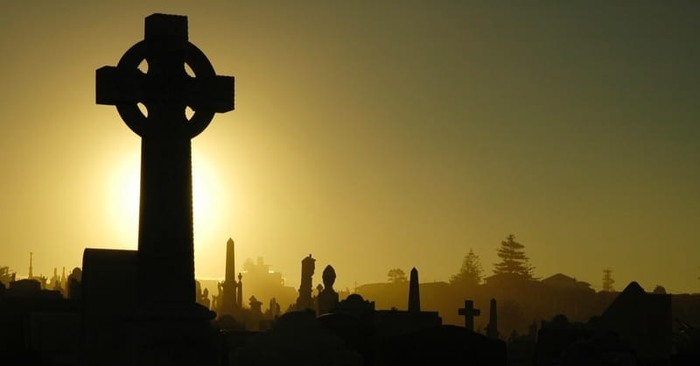
The New Testament reflects much more specific revelation from God of the afterlife. Yet there are some strong Old Testament indicators, though not nearly as many.
Job had the assurance that although he was going to be eaten by worms, he would receive a new body and in that body would actually see God face to face, obviously conscious. In
Then there’s
Here’s Dan 12:1-3, which is quite clear: “At that time Michael, the great prince who protects your people, will arise. There will be a time of distress such as has not happened from the beginning of nations until then. But at that time your people—everyone whose name is found written in the book— will be delivered. Multitudes who sleep in the dust of the earth will awake: some to everlasting life, others to shame and everlasting contempt. Those who are wise will shine like the brightness of the heavens, and those who lead many to righteousness, like the stars for ever and ever.”
In his book Hard Sayings of the Bible, Walter Kaiser writes that “Psalm 49 presents a stark contrast between the end of the lives of the wicked and the end of the lives of the righteous. The wicked are like ‘the beasts that perish’ (Ps 49:12, 20) without any hope that they ‘should live on forever’ (Ps 49:9). However, the righteous have the triumphant expectation that ‘God will redeem [them] from the grave [Hebrew, Sheol]; he will surely take [them] to himself’ (Ps 49:15). The idea is the same as that of
Kaiser also writes that “Accordingly, it can be argued on very strong linguistic and conceptual grounds that the ‘taking’ of a person from this earth implies that mortals are capable of inhabiting immortal realms. For the believer in Yahweh in Old Testament times, death did not end it all. There was life after death, and that life was to be in the presence of the living God. While Enoch did not experience ‘resurrection,’ he did experience glorification. He did, along with Elijah, transcend this mortal life and go in his body to be with God. Since Enoch had not died, he could not be resurrected.”
Many have argued that immortality is a New Testament idea despite the fact that passages such as the Psalms and
Other Psalms don’t explicitly deny existence after death and in some places seem to affirm continued existence after death, such as: Ps.16:10 “... will not abandon me to the grave... will... fill me with... eternal pleasures at your right hand.”;
Various other Old Testament passages also seem to suggest existence after death. David comforted himself with the knowledge that he would see his dead child once again, and Samuel appeared to Saul through the witch of Endor (
Even the careful attention that the Hebrews paid to the remains of their dead suggest some notion of an afterlife (e.g., burial, burial rites, disinterment and re-burial, defense of dead bodies from predators, rescue of dead bodies being dishonored by enemies, and so on). This is typically used by anthropologists as evidence for such a belief, at any rate.
Finally, consider
“For there is hope for a tree, When it is cut down, that it will sprout again, And its shoots will not fail. Though its roots grow old in the ground, And its stump dies in the dry soil, At the scent of water it will flourish And put forth sprigs like a plant. But man dies and lies prostrate. Man expires, and where is he? As water evaporates from the sea, And a river becomes parched and dried up, So man lies down and does not rise. Until the heavens be no more, He will not awake nor be aroused out of his sleep. Oh that Thou wouldst hide me in Sheol, That Thou wouldst conceal me until Thy wrath returns to Thee, That Thou wouldst set a limit for me and remember me! If a man dies, will he live again? All the days of my struggle I will wait, Until my change comes. Thou wilt call, and I will answer Thee” (
Walter C. Kaiser, Hard Sayings of the Bible, Pages 105-106 (Downers Grove, IL: InterVarsity, 1997, c1996).
For more information on the subject of Heaven, see Randy Alcorn’s book Heaven.
Used by permission of Randy Alcorn, Eternal Perspective Ministries, 39085 Pioneer Blvd., Suite 206, Sandy, OR 97055, 503-668-5200, www.epm.org







